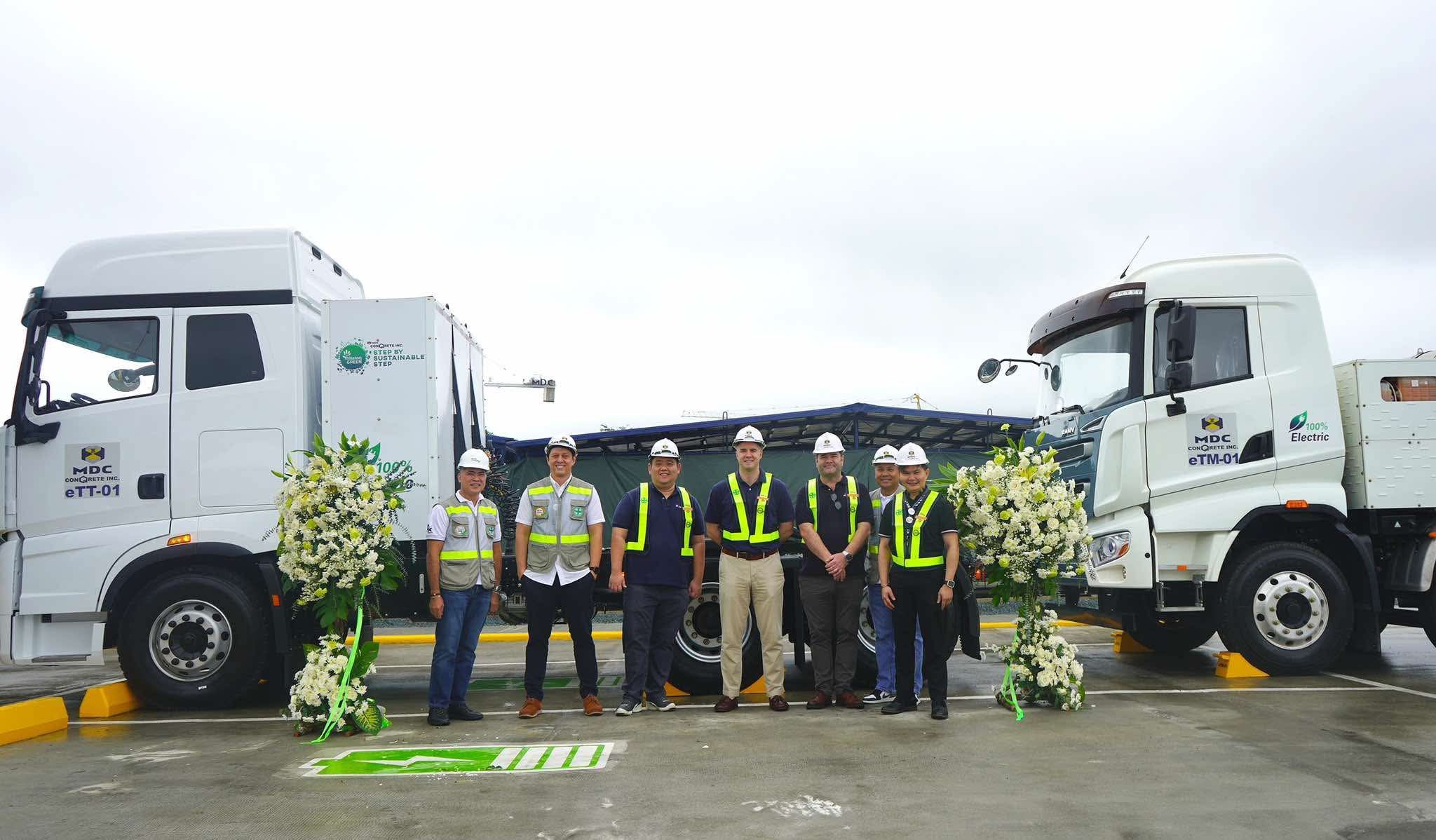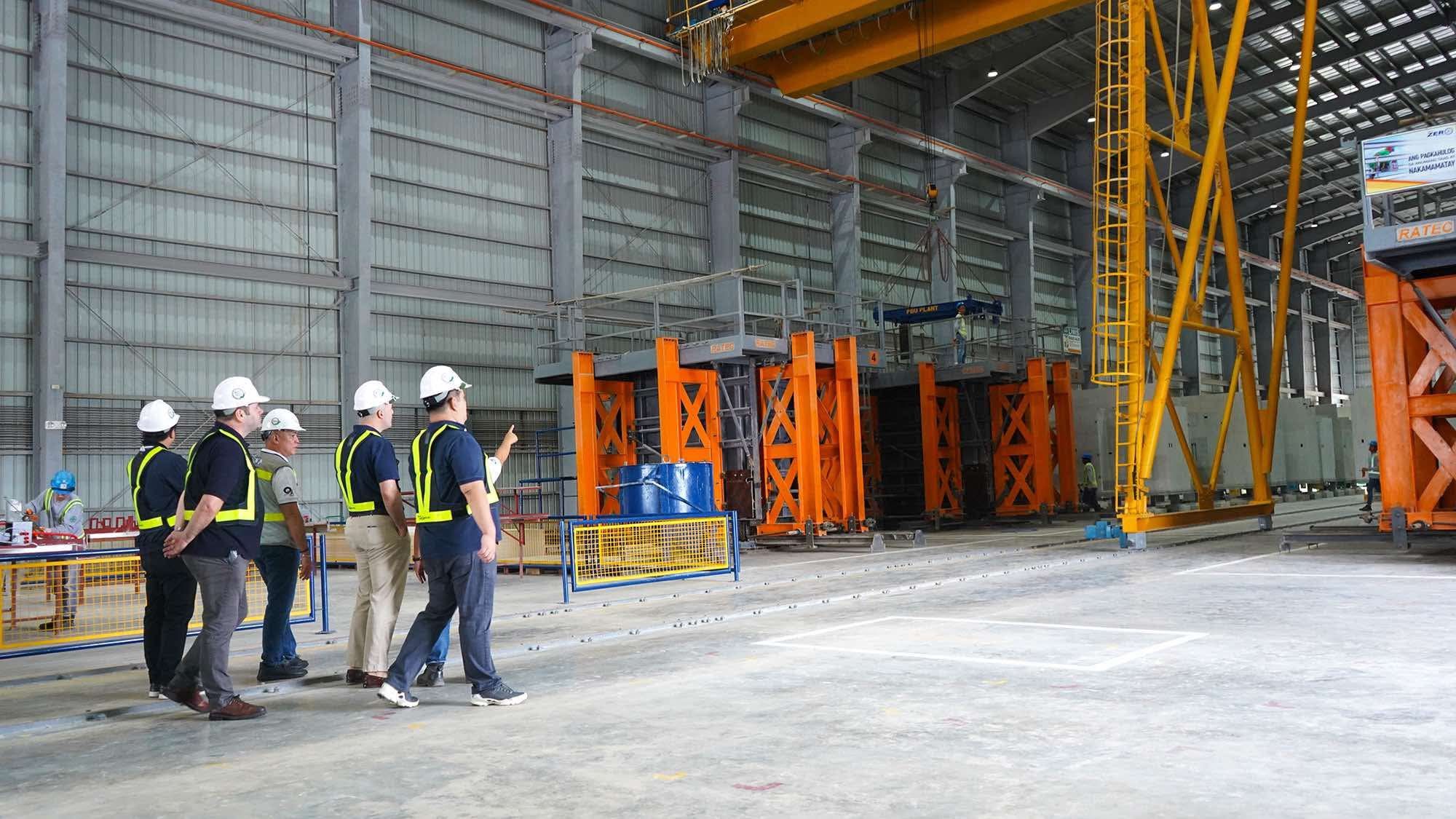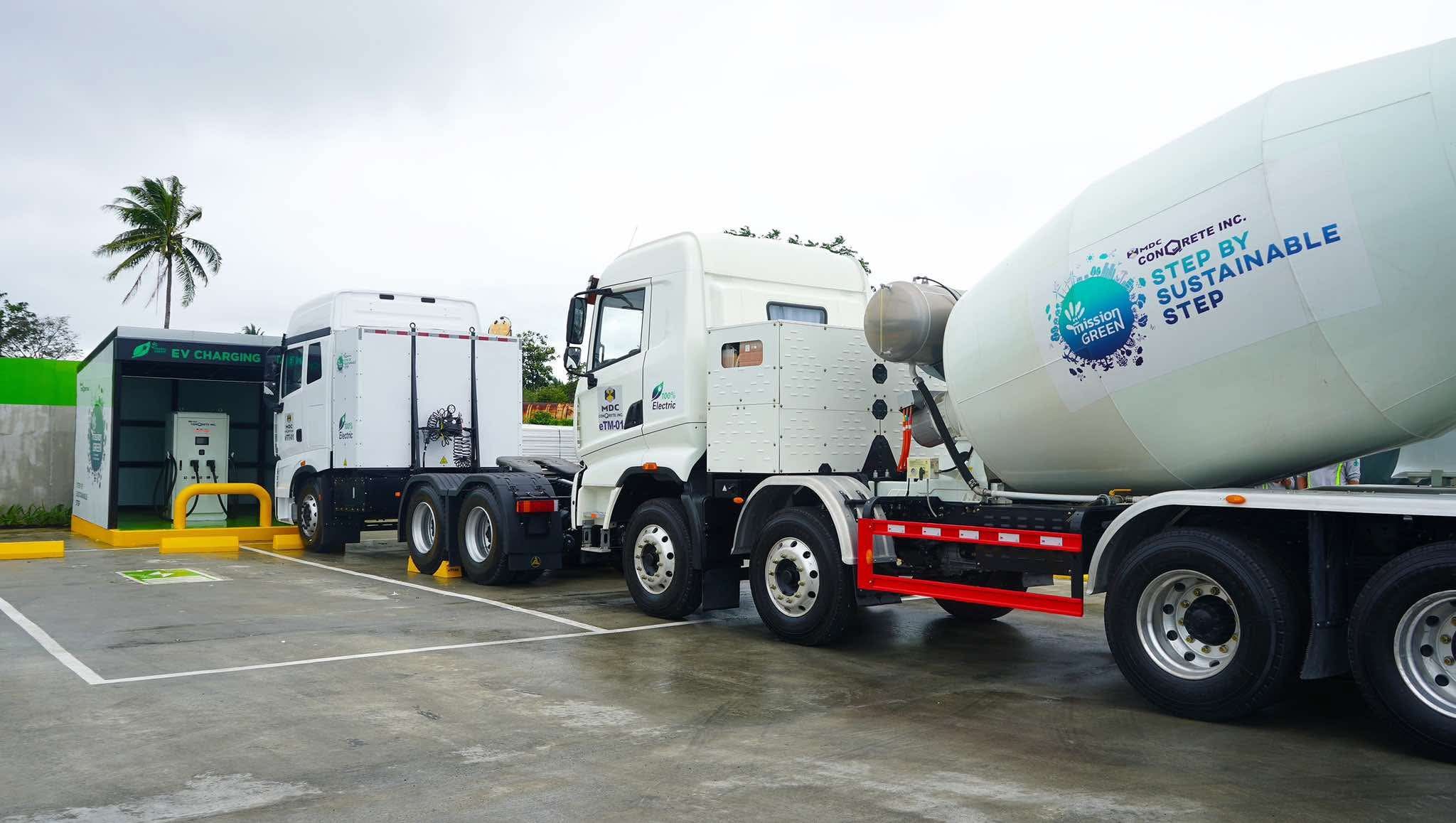MDC unveils PH's first EV heavy equipment and charging station
Leading the way in sustainable construction
Makati Development Corporation (MDC), the construction arm of Ayala Land, continues to pursue exciting innovations in sustainable construction by unveiling the Philippines' first electric (EV) cement mixer, EV trailer tractor, and EV charging station for heavy equipment, revolutionizing operations at its construction, precasting, and concrete manufacturing plants and contributing to a greener construction industry.
MDC Chief Operating Officer Robert "Boogz" N. Baffrey and MDC Construction Methods and Solutions Group Head Romeo “Bobby” T. Menpin, Jr. officiated the blessing of MDC's newly acquired EV heavy equipment and EV charging station at the MDC Technology Center in Sto. Tomas, Batangas, on Dec. 17, 2024. The ceremonial event was graced by Ayala Corporation's Chief Sustainability and Risk Officer Jaime Z. Urquijo, Head of Corporate Strategy and Business Development Mark Robert H. Uy, and Ayala Property Management Corporation (APMC) President Anthony "Tony" Martin. The MDC Technology Center, a hub of innovation, houses state-of-the-art precasting, concrete, and metal-forming manufacturing facilities, along with the company’s heavy equipment motor pool.

Supporting Ayala Land’s Carbon Neutrality Target for 2030 and the Ayala Group’s Net-Zero Greenhouse Gas Emissions Target for 2050, MDC has taken steps toward integrating electric vehicles and renewable energy sources into its construction operations. The initiative began with the acquisition of an electric concrete mixer and an electric trailer tractor from Sany, alongside three BYD Atto electric service vehicles from AC Mobility. As a necessary infrastructure for these electric vehicles and equipment, MDC installed EV charging stations at key locations: the MDC Corporate Center at Arca South in Taguig City, the MDC Concrete Batching Plant at Circuit Makati, and the MDC Technology Center in Sto. Tomas, Batangas.
Carbon emissions mitigation using electric vehicles and renewable energy sources is one of the cornerstones of MDC's sustainability framework which tackles a reinvention of business-as-usual practices by mobilizing its ecosystem of employees, workers, and business partners to embrace responsible construction practices. Based on MDC's 2021 baseline emissions, the company is projecting to avoid approximately 10,000 tons of carbon emissions annually once the transition has been fully realized. Other focus areas include internal stakeholder management and community development, sustainable supply chain, ecosystem site protection and sustainable design, and green construction technologies.

After the blessing, the team toured MDC's 3D Prefinished Prefabricated Bathroom Unit (PBU) manufacturing plant to witness how the company is leveraging Design for Modular Construction (DfMC) to reduce construction waste, enhance building precision and quality, and shorten project delivery timelines. DfMC is a comprehensive process that starts from building design to its translation into prefabricated components. The components are manufactured in a controlled, off-site setting and are then delivered to construction sites for faster, safer, and easier installation. To date, MDC has achieved 46 percent adoption rate of its operations into DfMC.
As one of the largest engineering, procurement, and construction firms in the Philippines, MDC is in a prime position to create meaningful change in the local industry. In the face of growing global environmental concerns, MDC is committed to catalyzing green construction in the Philippines by driving innovative and sustainable solutions that address ecological and societal needs.
